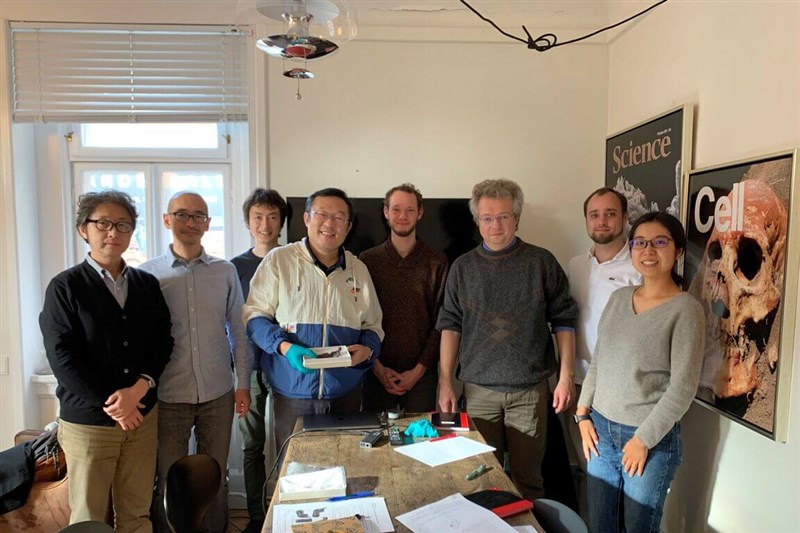
Taipei, April 11 (CNA) Denisovans, an extinct species of archaic human, once inhabited ancient Taiwan, according to the National Museum of Natural Science (NMNS) on Friday.
The discovery was made by NMNS researcher Chang Chun-hsiang (張鈞翔) and University of Tokyo professor Yousuke Kaifu in collaboration with an international team of scientists, the museum said in a news release.
By applying ancient protein analysis, a decade-long study carried out on a hominin mandible has finally identified it as belonging to a male Denisovan who lived roughly 380,000 years to 50,000 years ago in the region, it said.
Denisovans were a close cousin of Neanderthals, with the two lineages diverging from a common ancestor around 400,000 years ago.
The fossil jawbone was dredged up from the nearby Penghu Channel by fishermen several years ago and later donated to the Taichung-based museum.
Among the 4,241 amino acid residues from the 51 proteins recovered in the fossil, the research team identified two derived amino acid sequence variants unique to Denisovans, Chang said.
Phylogenetic trees constructed by using two different methods both indicated that the Penghu hominin and the known Denisovans belonged to the same clade, he added.
Meanwhile, additional analysis confirmed that the jawbone belonged to a male individual after genes on the Y chromosome were identified on its acid-etched dental enamel surface.
Prior to this discovery, Denisovan fossils had only been found in northern Asia -- specifically Siberia and Tibet, the NMNS said.
This research provides direct evidence that Denisovans once inhabited Taiwan, shedding light on the complexity of archaic human evolution and migration patterns in Asia, it explained.
A report on the team's research titled "A male Denisovan mandible from Pleistocene Taiwan" was published on Thursday by the renowned international journal Science.
According to a Reuters report on Thursday, the jawbone recovered off Taiwan's Penghu Island showed that this enigmatic lineage of archaic humans once inhabited a vast expanse in eastern Eurasia in environments ranging from cold and arid to warm and humid.
- Science & Tech
Taiwan researchers develop blood test to detect migraine risk
07/21/2025 10:11 PM - Science & Tech
Ex-Academia Sinica head, Filipino entrepreneur to receive BIO Asia Award
07/21/2025 09:32 PM - Society
Taiwan Railway reopens rain-disrupted South Link Line
07/21/2025 09:17 PM - Society
Detention extended for Ko Wen-je, Taipei councilor (update)
07/21/2025 09:12 PM - Politics
Experts laud Han Kuang drills for realism, discipline and practicality
07/21/2025 08:48 PM